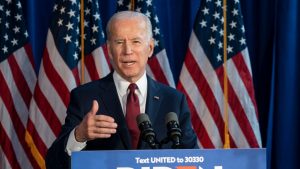A new study is flagging a “little-known” immigration program as potential trouble for British Columbia’s construction labour force.
The Labourers International Union of North America (LIUNA) Western Canada has released a study entitled, Canada’s Migrant Worker Programs and the Construction Labour Force in British Columbia (2015-2016), detailing the impact of the International Mobility Program (IMP) on the province’s construction industry workforce.
The study, a LIUNA press release stated, found that construction firms in B.C. used the IMP to hire 1,240 migrant workers in 2015 and 1,285 in 2016.
“To my knowledge, this is the first study to assess the effects of the International Mobility Program on the construction industry in Canada,” explained LIUNA Western Canada manager Mark Olsen.
“The B.C. government claims the IMP isn’t used by employers to hire migrant workers in building trades occupations. This study shows employers use the IMP and the Temporary Foreign Worker Program (TFWP) to import a critical mass of migrant construction workers, which distorts the B.C. labour market.”
According to LIUNA, construction employers hired 2.6 per cent of the migrant workers in B.C. under the IMP in 2015.
The IMP is a separate initiative from the more well-known TFWP, which is commonly used to bring international skilled workers to Canada. The Government of Canada states on its immigration website that “under the International Mobility Program, an open work permit enables a person to work for any employer for a specified period of time.”
“The federal and B.C. government had said the IMP wasn’t set up for construction and I don’t think they realized it was being used for construction,” Olsen explained.
In 2014, Olsen said, then prime minister Stephen Harper pulled the IMP from the TFWP, but since that time “there’s been no due diligence, and no process involved,” Olsen claimed.
Under the TFWP, employers have to submit a Labour Market Impact Assessment to determine if there is a need for migrant workers and that Canadians are not available to, or not able to do the job.
“The IMP is really set up for technology and engineering jobs, not for construction,” Olsen stated. “It’s going to get worse with more international companies bidding on big (Canadian) jobs.
“Our fear is that in B.C., with huge projects coming up, if those projects are union it isn’t a problem, but if not, foreign workers could be brought in to do those big projects.”
The issue is not the qualifications of the workers, he said, but rather that “workers who are just as qualified will come in and that will lower wages and benefits.”
Rather, Olsen said, workers should be brought in if needed, but paid fairly and given a pathway to Canadian citizenship.
The federal government should also re-examine both the current system and its impacts on the construction industry, he said.
“We want the federal government to do a full study of the industry, get the IMP out of construction altogether and modify the Temporary Foreign Worker Program,” Olsen said.










Hi. I have put together an official e-petition to force employers to pay TFW’s 25% more than the local prevailing wage. I believe that this would go a long way in preventing employers from using the TFW program to undercut Canadian workers. It is already sponsored by an MP (Shadow Immigration minister Michelle Rempel) and it is up on the official House of Commons website. I believe that only by getting a LOT of signatures will anyone in government actually listen. Even if it simply forces them to admit that they don’t care, that is better than sitting around doing nothing. Link here:
https://petitions.ourcommons.ca/en/Petition/Details?Petition=e-1508